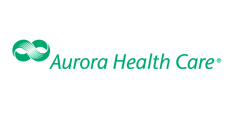By Anne Weers, RN, MS
Employers are in a unique position to help their employees stay healthy by encouraging cancer screenings. Increasing awareness and sharing the importance of cancer screenings for “at-risk” diseases is the first step in early detection.
According to the American Cancer Society, last year there were an estimated 1.6 million new cancer cases diagnosed, and approximately 595,000 deaths from cancer in the US.
Early detection can lower disease severity and result in fewer cancer deaths, especially for breast, cervical and colorectal cancers. For certain cancers, screening procedures actually prevent the development of cancer by managing pre-cancerous conditions.
Early versus late-stage cancer treatment costs
Cancer can be expensive for both employers and employees. Caring for people with more advanced cancers costs much more than caring for those with less advanced cancers.
In one analysis, the costs for treating late-stage lung cancer, compared to early-stage were shown to be twice as expensive, with late-stage lung cancer treatment often exceeding more than $100,000.
1
In addition to increased medical costs, late-stage cancers often result in additional costs because of employees’ lost productivity and short and long-term disability costs.
How can employers help?
Aurora’s offers programs for employers and employees to help fight cancer the best way we know how —
by preventing it.
Lunch and Learn presentations
Aurora’s cancer experts are available to visit your workplace to conduct on-site presentations, distribute brochures and other educational materials to increase cancer awareness and promote the benefits of cancer screenings.
These experts can conduct several types of cancer screenings onsite, such as breast and oral cancer screenings. Screenings are conducted in private and include education about self-exams, as well as sharing information about risk factors and signs and symptoms to watch out for.
For other screenings that can’t be performed onsite, appointments for employees can be made at one of Aurora’s designated facilities. This includes:
Lung cancer screening
Did you know that lung cancer remains the number one cause of cancer death for men and women in this country? Lung cancer screening is available at many hospitals, clinics and freestanding imaging centers. Low-dose CT scan is the preferred screening method that has replaced conventional chest x-rays. The test is quick and painless.
Lung cancer screening is highly recommended for people between 55 and 74 who have smoked an average of one pack of cigarettes a day for 30 years. Screening for lung cancer is especially beneficial, since it has the potential of finding cancer much earlier, when it’s easier to treat.
Mammogram screening for breast cancer
This breast-imaging exam is recommended for women beginning at age 40. A mammogram takes images of the breast to look for possible tumors or other irregularities that may be too small to be felt by examination.
Colorectal cancer screening
A colonoscopy is recommended for men and women who are at average risk, beginning at age 50. By removing pre-cancerous polyps (growths) found during colonoscopy, before the growths turn cancerous, actually prevents colorectal cancer from ever developing.
Cervical cancer screening
A Pap test with human papillomavirus (HPV) testing is recommended every three years for all women starting at age 21. Many cases of cervical cancer are caused by certain strains of HPV. About half of all sexually active people will be infected by one or more strains during their lifetime. The HPV vaccine protects against the types of HPV most likely to cause cancer. This vaccine is most effective when given before a person becomes sexually active.
After a cancer diagnosis…
Hearing the words, “You have cancer,” can be overwhelming. If an employee receives a cancer diagnosis, Aurora Cancer Nurse Navigators are available to help with everything from:
• understanding the diagnosis and treatment options
• coordinating multiple medical appointments
• providing guidance and support along the way
Navigators are certified nursing professionals who guide newly diagnosed patients and family members through the process of cancer treatment.
The bottom line: helping employees live well
Cancer-screening guidelines will continue to evolve as technology and knowledge about diseases expands. Maintaining an ongoing relationship with a health care provider is the best way to receive guidance about screenings.
By improving access and promoting cancer-screening tests for employees, employers can help employees prevent or treat cancer through early detection — thus improving cancer survivorship. Taking a proactive approach to cancer screening, diagnosis and treatment can reduce lost work time, help control health care costs and encourage employees to live well.
Sources
- “Comparing Episode of Cancer Care Costs in Different Settings: An Actuarial Analysis of Patients Receiving Chemotherapy,” Milliman, Inc, Aug. 29, 2013.
Anne Weers, RN, MS, is Aurora’s System Program Quality Manager-Cancer Services. To learn more, visit AuroraEmployerSolutions.org 